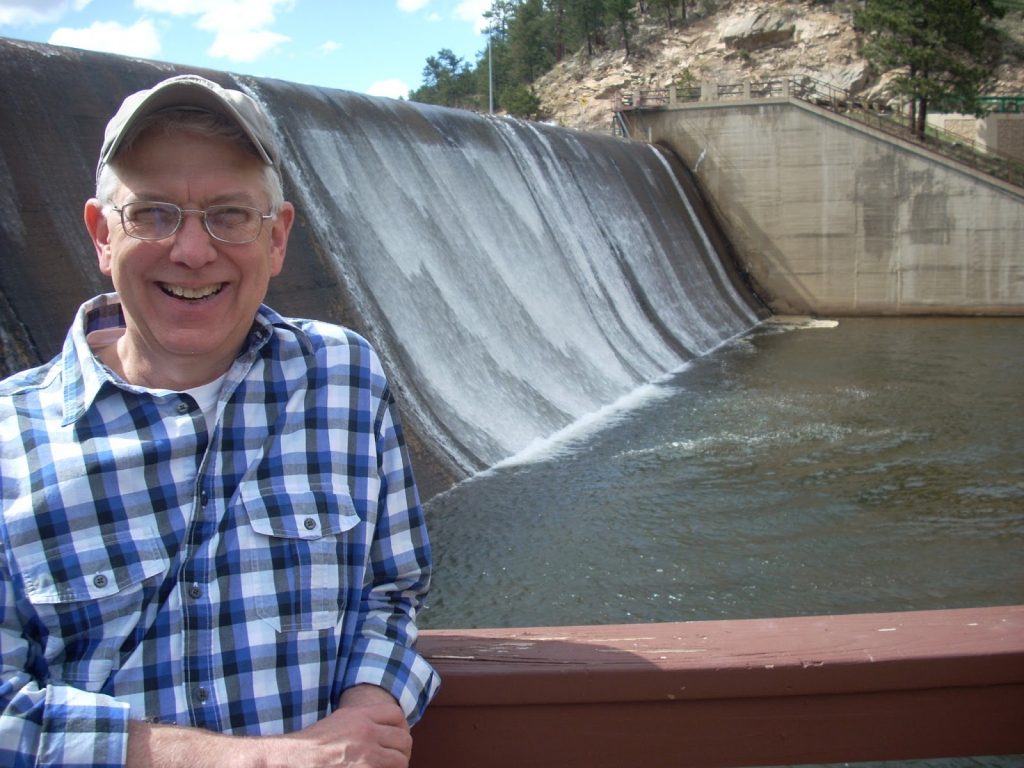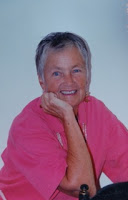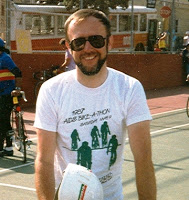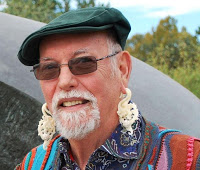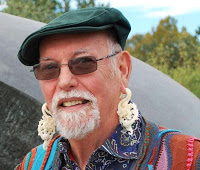I have a kind of dance thing. It started early. In second grade I had my first date with a neighbor girl attending a square dance at the Elks Club. I did other folk dancing with the Girl Scouts. I’ve done interpretative dances in therapeutic and religious settings including one in a sermon I gave in a seminary preaching class. I taught African tribal dancing to children. I danced Universal Peace with adults. I danced in traditional Native American style at intertribal powwows and two stepped with an Indian guy at a cowboy bar. I’ve danced to rock music: first the bop, then the jerk, then disco, then new wave, and finally on-your-own improvised dancing to a variety of music, which brings me to this story.
I went down to The Denver Compound/Basix to dance one Saturday night several years ago; went with my friend Tony. I had been a number of times before and especially liked dancing there by myself. The music at the club had provided me some firsts: hearing a club mix with Gregorian chant in it, and then another mix with American Indian singing. The music there seemed to pull together several themes of my life, so my dance responses to the nearly deafening techno music combined barely-disguised choral directing, Indian dance steps, interactions with various friends, sexual movements, and my ever-changing dance steps to the ever-changing music. Dancing had become for me an exultation of life, of my still relatively new life as a gay man. Evenings there combined sweat, music, men, reveries, and always movement enhanced by a light show; an evening dancing on the Basix floor for me an unparalleled celebration. This evening like others seemed a mix of need, allure, and creative movement.
I had noticed a man who danced there regularly on Saturday nights. He stood off to the side of the dance floor, out of the way of other more exuberant dancers. Always dressed the same in cap, tee shirt, Levis, and work boots, he swayed from side to side shifting his weight from left to right, barely lifting his heels, and for several hours never missing a beat. He was there simply to dance. I imagined him as dancing alone with his daemon— perhaps St. Speed or the great god Oxycodon. He never moved toward a partner. He seemed a symbol for my too-solitary self. Would he ever alter his repetitions? Perhaps it was he that one of my friends watched the night he judged the techno music boring! Tonight he was there in his place.
I knew I was different than the solitary dancer, knew I’d move toward someone eventually, would need a human partner to copy, contrast, or complement my dance. Would this night be the one? I didn’t know. I just melded into the crowd as if joining a primal dance of love. A male-to-male mating ritual. A free-form yet stylized communication bolstered by drugs and alcohol (I was in a bar) just like in so many primal cultures. One alcoholic drink sufficed for me to enter the ceremony, released me into the musical exploration of what I could communicate there. I emulated the booted swayer as I moved into the magic of the rhythm. When I felt the backbeats my arms joined in the dance. My feet began to move me out from the wall-flower pose and into the seething mass of the group. Finally my whole body took up the demands of the beat, the possibilities of the night. I danced.
Then I saw him, not the solitary dancer who barely moved, but another guy across the room. He didn’t seem to be dancing with anyone, so I started dancing with him. I’d never noticed him before, didn’t know him, didn’t even know if he was aware of me. I just wanted some kind of relationship with another man, another dancer whose movements I could complement. It seemed a game and a pleasant game at that. For nearly an hour I danced with him at a great distance. I stepped this way and that, always in touch with him in my sidelong glances, my peripheral awareness as I slowly edged across the room to be near him. Eventually he did acknowledge my moves. Then we danced back to back, then side by side, then face to face. Dancing, smiling, moving away, then together. We touched. Shy smiles. Sparkling eyes.
He was not particularly handsome. Dark brown hair neatly trimmed, black stretchy shirt revealing a nice-enough body with square build, black slacks obscuring the shape of legs and more. His dance moves more conservative than mine. As I matched his pace I wondered what was going on in his mind. Was he amused? He didn’t turn his back except to bump. Drunk? On drugs? Didn’t seem to be, but I was not sure. What I had drunk? Probably the Cape Cod I liked to start my dancing nights with, that and water. We were warmed by our dance that winter night, warmed by our responses, our constant motion, the crowded dance floor.
“Gotta go,” I finally said when my friend Tony signaled his need to leave. “Thanks. Oh, I’m Phil. Hey, this was fun. Hope to see you again.” He didn’t object. Said “Bye.”
I rode the bus down to the Baker neighborhood the next Saturday night. He showed up too there across the room. I was pleased. We danced. The move across the floor didn’t take nearly as long. The body to body movements were more direct, not requiring much interpretation. Then it was closing time. “Gotta catch the bus,” I said. I stalled while he got his coat out of a locker. That’s when I saw the pin, knew it was a Trekkie symbol. I politely said “Thanks for dancing” and “Goodnight” and moved away. Somehow his identification with science fiction stood in the way for me. Made him less attractive? Boy. I danced out of there, across the Walgreens parking lot to catch the Number Zero bus back home. I wondered what I had learned about myself, what I had learned in a bar. What was the truth? The reality? Really. What dance was I willing to execute? I admit I was looking for more than a dance partner, but I certainly wasn’t interested in a relationship characterized by going to sci-fi movies and that kind of fantasy. I wanted a dancer that could dance a domestic and somehow romanticized relationship. Me? Romantic? Must have been the effect of living with my wife for twenty-nine years. Or was it the combination of booze and dancing? Thought about these things all the way home. Boy. What we can learn dancing and ponder riding busses.
About the Author
He also blogs at artandmorebyphilhoyle.blogspot.com
